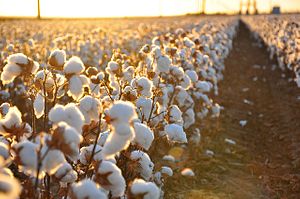The European Parliament is set to vote again on the 2011 EU-Uzbekistan Textiles Protocol which was postponed five years ago.
In 2011, parliamentarians rejected the protocol, sending it back to the commission with a resolution that concluded, “Parliament will only consider the consent if the ILO [International Labor Organization] observers have been granted access by the Uzbek authorities to undertake close and unhindered monitoring and have confirmed that concrete reforms have been implemented and yielded substantial results in such a way that the practice of forced labour and child labour is effectively in the process of being eradicated” from the national to down to the local levels.
A vote by the international trade (INTA) committee — 31 in favor and 4 opposed — on November 10 sends the stalled protocol forward to be considered by parliament in December. Rapporteur Maria Arena said in a statement to Reuters, “The progress made by the Uzbek authorities allows us to move forward and include textiles in our partnership agreement. But we will remain extremely vigilant.”
Ahead of the vote, a coalition of human rights groups urged the committee to not consent to the protocol. Their letter said, “Adopting the textile protocol now would contradict the principles of the European Union’s foreign policy, and ignore strong evidence of the government’s persistent and continued use of forced labour on a massive, nationwide scale in Uzbekistan.”
Europe represented a major market for Uzbek cotton. The 2011 resolution rejecting the protocol, notes that the estimate of EU imports of Uzbek cotton ranged from 6 percent to 23 percent in the previous decade.
In 2013, Uzbekistan began allowing the ILO to monitor the annual harvest. Along with a boycott by major clothing manufacturers, Uzbekistan did make progress in scaling back the use of child labor and EU pressure certainly played a part.
The ILO’s 2015 findings noted that “the use of children in the cotton harvest has become rare, sporadic and socially unacceptable, even if ongoing vigilance is needed.”
But, as several human rights organizations have reported over the years, Uzbekistan simply shifted to greater usage of forced adult labor, continuation of a demanding production quota system, and harassment of independent monitors.
According to Reuters:
Arena, a MEP with the Socialists and Democrats group, said in an email to the Thomson Reuters Foundation the committee was aware forced labor remained an issue but that blocking the deal would have risked damaging the dialogue and cooperation built with Uzbekistan over the past five years.
The EU has had to chart a careful course with regard to the states of Central Asia, Uzbekistan in particular. Parliamentarians may view progress on child labor as good enough to move forward with the protocol, even though other concerns remain. The hope is that rewards for good behavior will elicit further reforms. Human rights advocates are more skeptical, saying, “entering into the textile protocol with Uzbekistan now would have an adverse impact on human rights.”
Also for consideration is the impact of a new president on Uzbekistan’s relations and the cotton harvest. Here, rights advocates remain concerned, as interim President (and presumably next president) Shavkat Mirziyoyev was responsible, first as a regional governor and then as prime minister, for the annual cotton harvest. Certainly, there’s room for change but it has yet to be seen whether Mirziyoyev will engage in significant reforms in Uzbekistan’s cotton industry. The EU may be hoping that a reward for improvements to date will entice the new leader to consider future reforms.

































